Trends of mobile app development in the future

The future of mobile app development is very promising, as the use of mobile devices continues to grow rapidly worldwide.
Some trends that are likely to shape the future of mobile app development such as Artificial intelligence (AI) and Machine Learning (ML), Augmented reality (AR) and Virtual reality (VR), Blockchain technology, Cross-platform development tools
Trends that are likely to shape the future of mobile app development
Artificial intelligence (AI) and Machine Learning (ML)
Will play a bigger role in mobile app development. Developers will be able to use AI and ML to create smarter apps that can learn from user behavior and adapt to their needs.
By analyzing user data, AI and ML algorithms can help create personalized experiences for users. Apps can recommend products, services, or content based on a user's preferences, history, and behavior.

AI and ML can help predict user behavior and preferences, allowing developers to anticipate user needs and provide more relevant content.
AI-powered chatbots can handle user queries and provide assistance within the app, freeing up developers' time to work on other aspects of the app.
AI and ML can enable image and speech recognition, allowing users to interact with apps in new and innovative ways.
Augmented reality (AR) and Virtual reality (VR)
Augmented reality (AR) and virtual reality (VR) technologies are becoming increasingly popular in mobile app development, and their use is expected to grow in the future. AR and VR can provide users with immersive and interactive experiences that are not possible with traditional mobile apps.
AR technology allows developers to overlay virtual objects in the real world, enhancing the user's perception of reality. AR games can create virtual game worlds that interact with the real world, providing a more engaging gaming experience. AR can be used to create interactive educational content that overlays virtual information in the real world. AR can provide users with directions and information about their surroundings, making navigation easier and more intuitive.
VR technology allows developers to create completely immersive virtual environments, giving users a sense of presence in a virtual world. VR gaming provides users with a fully immersive gaming experience that can transport them to new worlds. VR can be used to create realistic training simulations that allow users to practice skills in a safe and controlled environment. VR can be used in healthcare to provide patients with virtual therapy sessions and pain management techniques.
Blockchain technology
Blockchain technology is a decentralized and transparent system that can enhance the security and transparency of mobile apps. With blockchain, developers can create mobile apps that are resistant to hacking and cyber attacks, making them more secure for users.
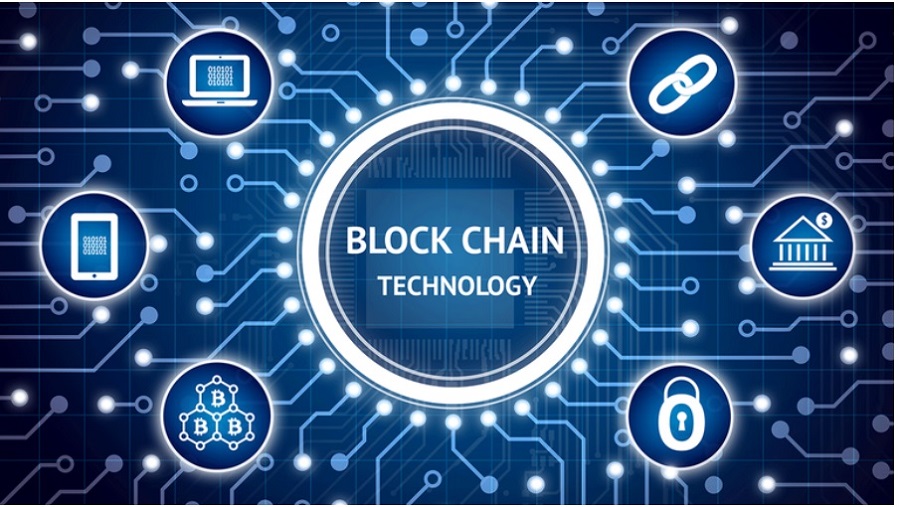
Blockchain technology can be used to create secure and verifiable digital identities for users, eliminating the need for passwords and providing a more secure login process.
Blockchain technology can enable developers to create smart contracts, which are self-executing contracts that automatically trigger actions based on pre-defined conditions. Smart contracts can be used for a variety of purposes, such as automating payments and verifying the authenticity of digital assets.
Blockchain technology can be used to create transparent supply chain management systems, enabling users to track the movement of goods and verify their authenticity.
Blockchain technology can be used to facilitate secure and transparent cryptocurrency transactions within mobile apps, enabling users to send and receive funds without the need for intermediaries.
Cross-platform development tools
Cross-platform development tools are becoming increasingly popular in mobile app development. These tools allow developers to create mobile apps that work on multiple platforms (e.g., iOS and Android) with a single codebase, reducing development time and costs.
React Native: React Native is a popular open-source framework for building mobile apps that works on both iOS and Android platforms. It allows developers to use JavaScript and React to build native mobile apps with a single codebase.
Xamarin: Xamarin is a cross-platform development tool that allows developers to use C# and .NET to create mobile apps for iOS, Android, and Windows platforms. It provides a native user experience and access to device-specific features.
Flutter: Flutter is an open-source mobile app development framework created by Google that allows developers to build high-performance, visually attractive apps for iOS, Android, and web platforms with a single codebase. It uses the Dart programming language.
PhoneGap: PhoneGap is an open-source framework for building mobile apps that works on multiple platforms, including iOS, Android, and Windows. It allows developers to use HTML, CSS, and JavaScript to create hybrid mobile apps.
Read more: Important Reasons When Choosing A Vietnam Software Outsourcing Company
We hope you can find the best partner for your business. Take a look at our portfolio to see the full range of projects our professionals have tackled. To discuss your idea — leave us a message via:
- Email: [email protected]
- Hotline: +84 28 71092939 | +84 933 848989
- www.aegona.com
- Fanpage: Aegona Ltd
- Zalo OA: https://bit.ly/41UeXrx
- Address: Orbital Building (QTSC Building 9), Quang Trung Software City, District 12, Ho Chi Minh City, Vietnam.
related post
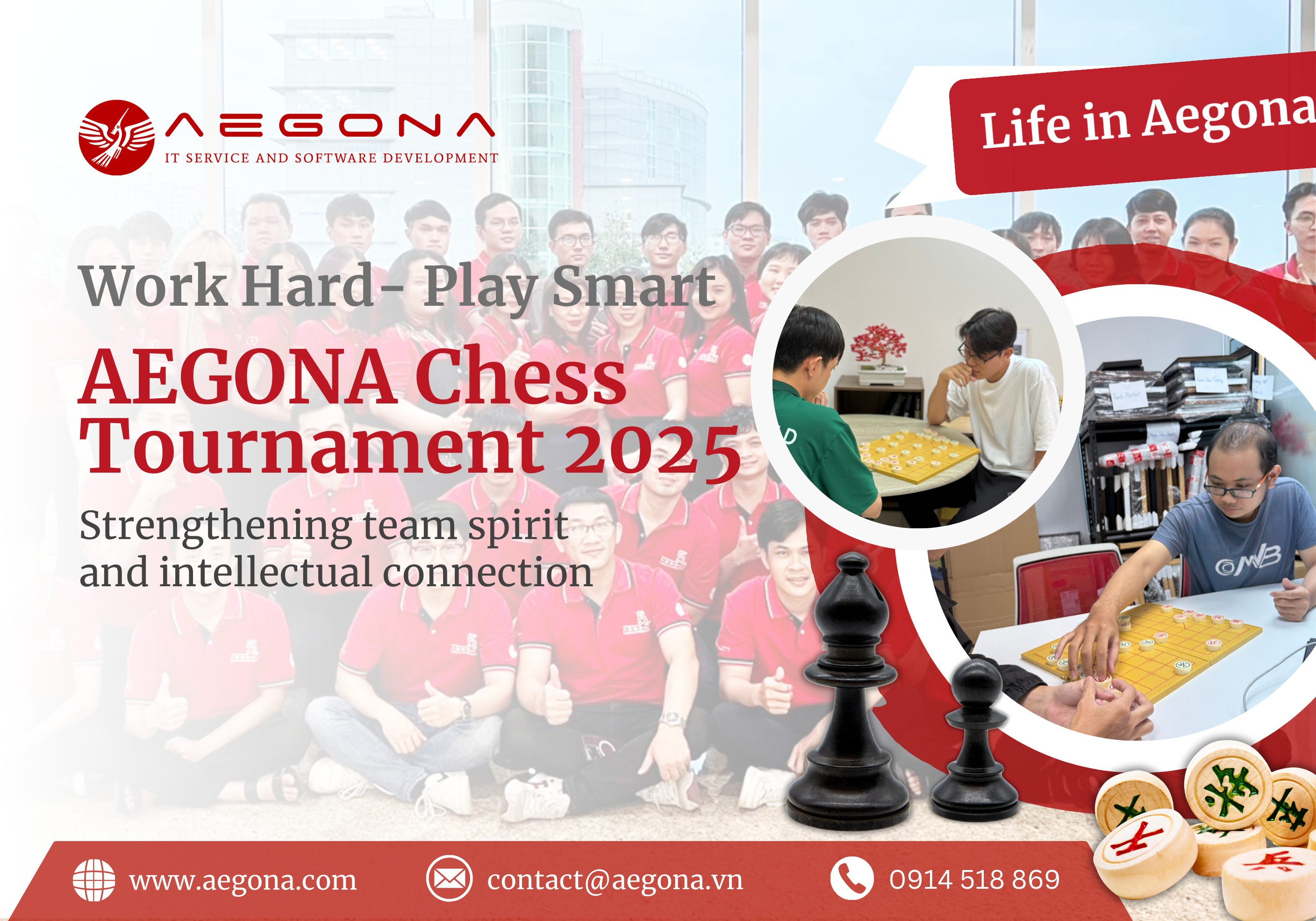
Amid the vibrant working atmosphere at Aegona, this September and October will be more exciting than ever with the kickoff of the 2025 Internal Chess Tournament

As scheduled, the monthly internal event “Happy Hour” returned to Aegona’s office this September afternoon, bringing along a joyful atmosphere filled with connection, laughter, and positivity.
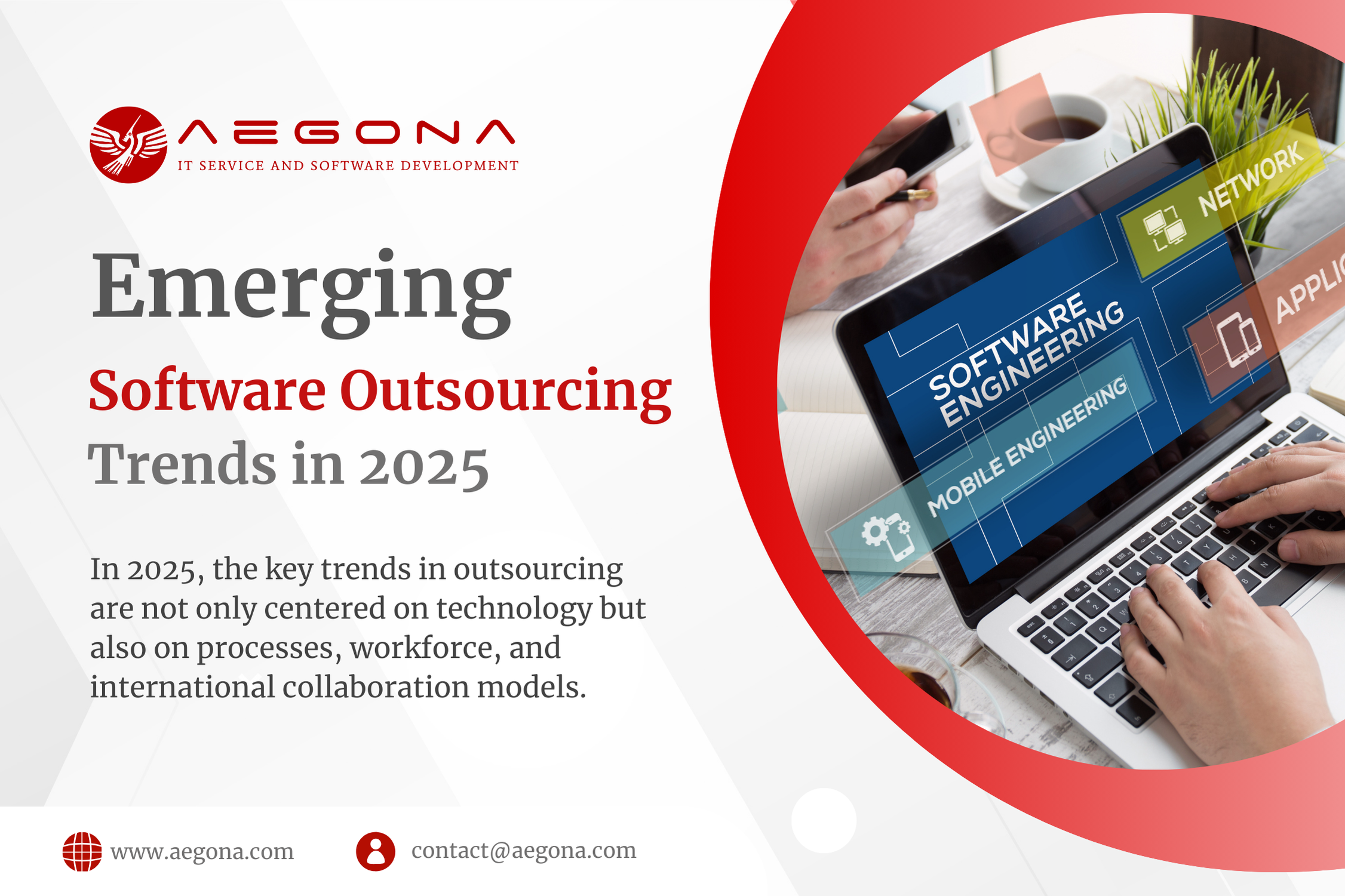
Discover the key software outsourcing trends in 2025, from AI, automation, hybrid outsourcing to workforce training. Understanding these trends helps businesses optimize costs and improve software quality.
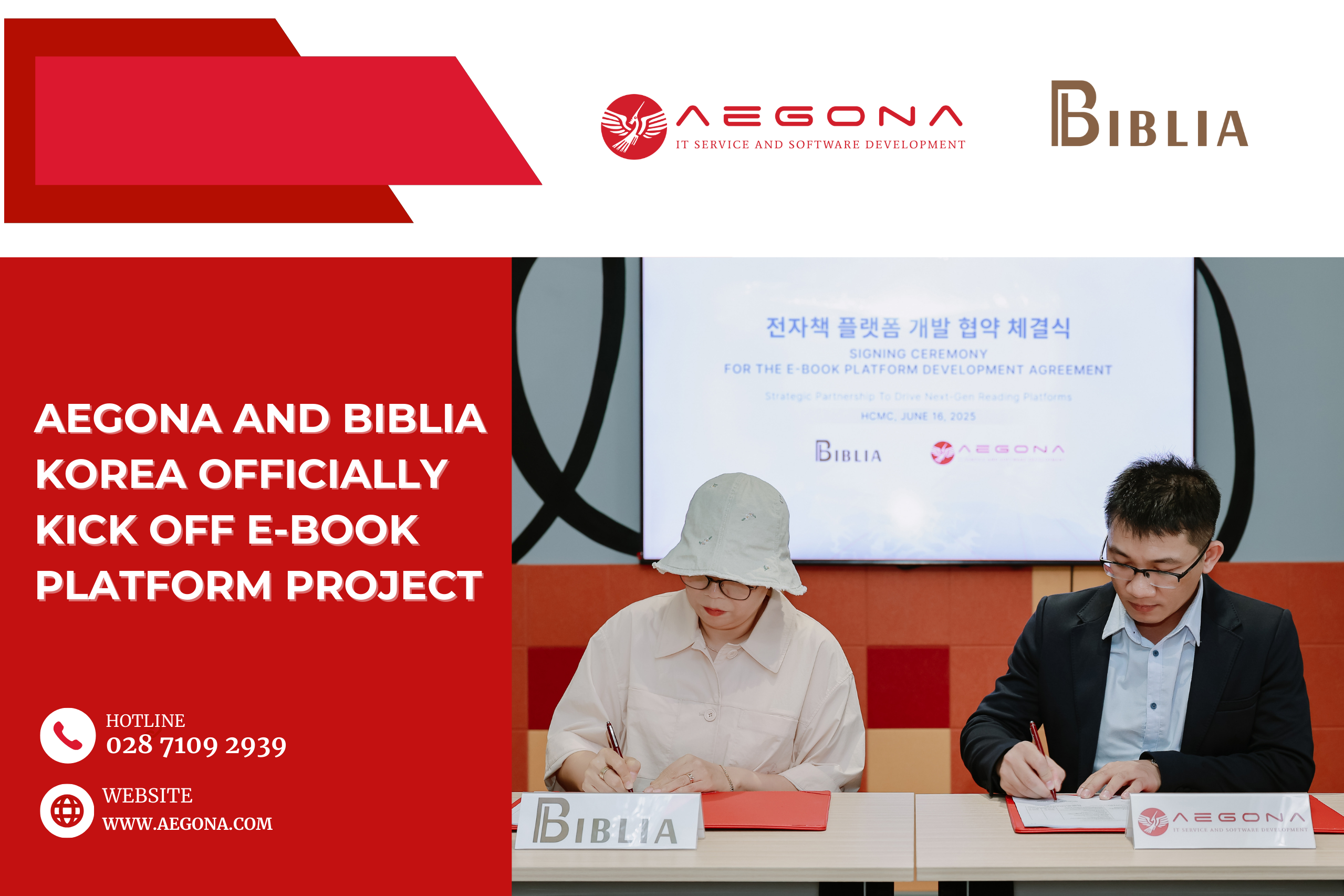
On June 16, 2025, following a series of technical discussions and alignment on technology directions, Aegona and Biblia officially signed a strategic cooperation agreement to develop a comprehensive digital publishing platform that integrates both E-books and Audiobooks.
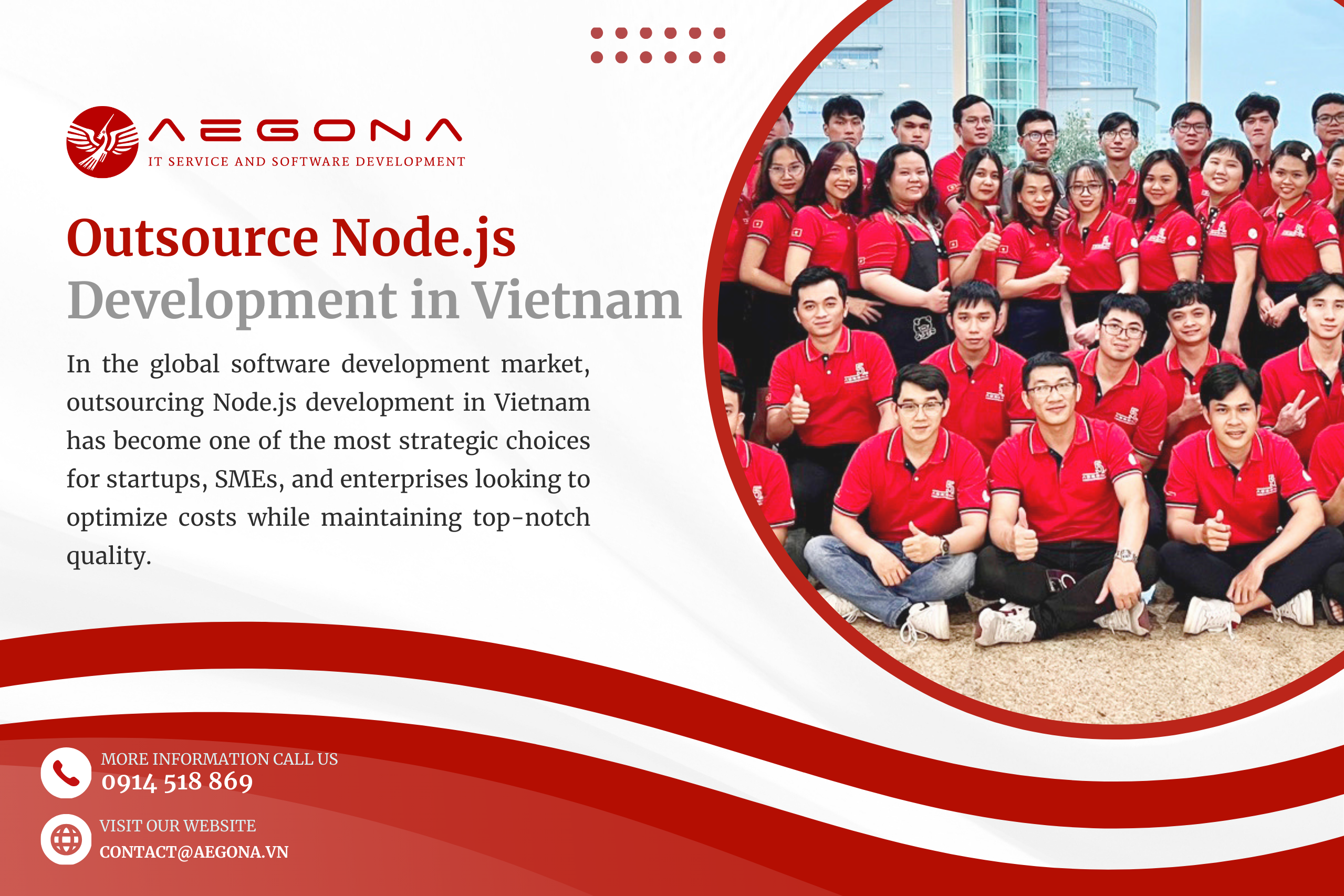
In the global software development market, outsourcing Node.js development in Vietnam has become one of the most strategic choices for startups, SMEs, and enterprises looking to optimize costs while maintaining top-notch quality.
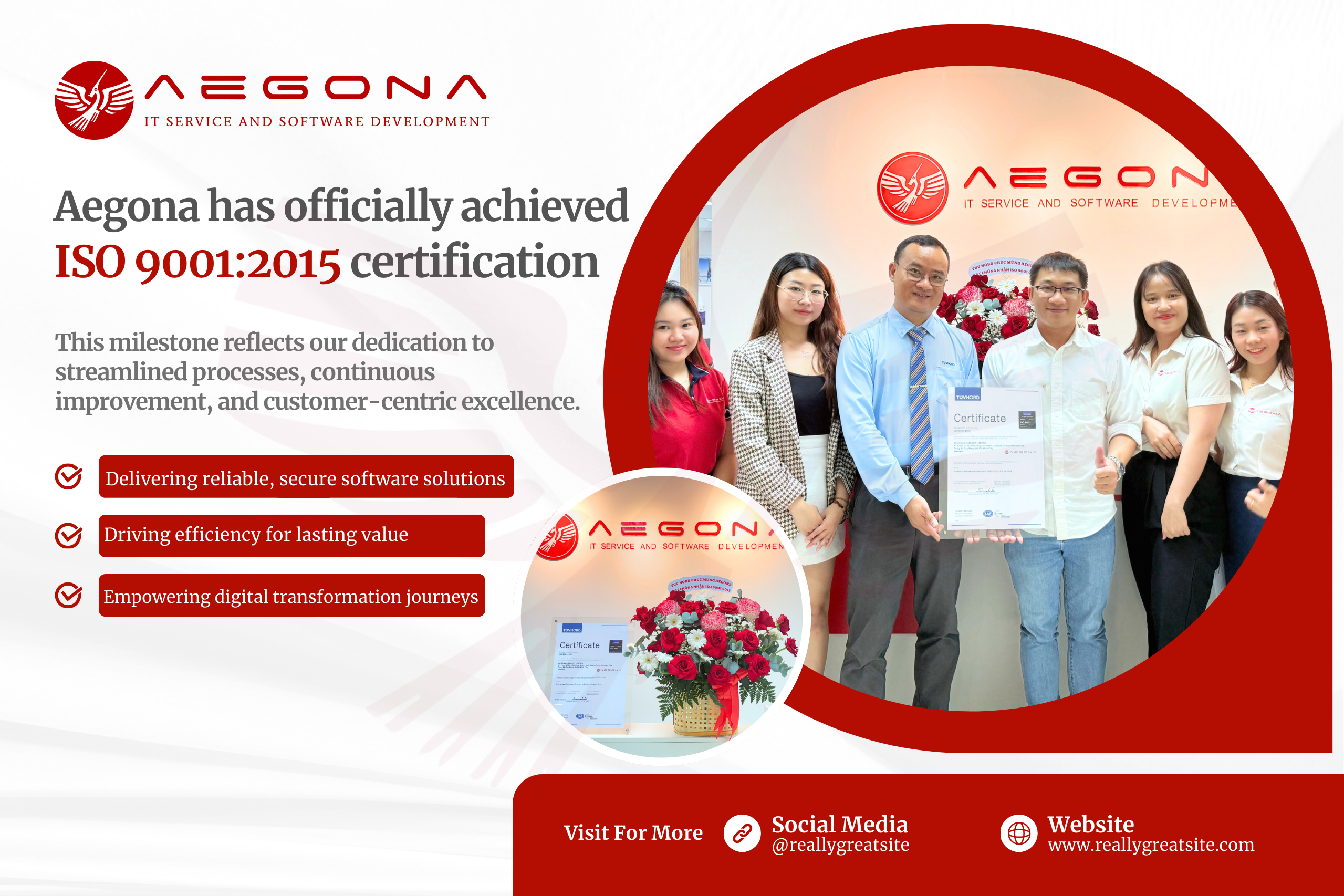
We are proud to announce that Aegona has officially achieved ISO 9001:2015 certification, an internationally recognized standard for quality management systems.
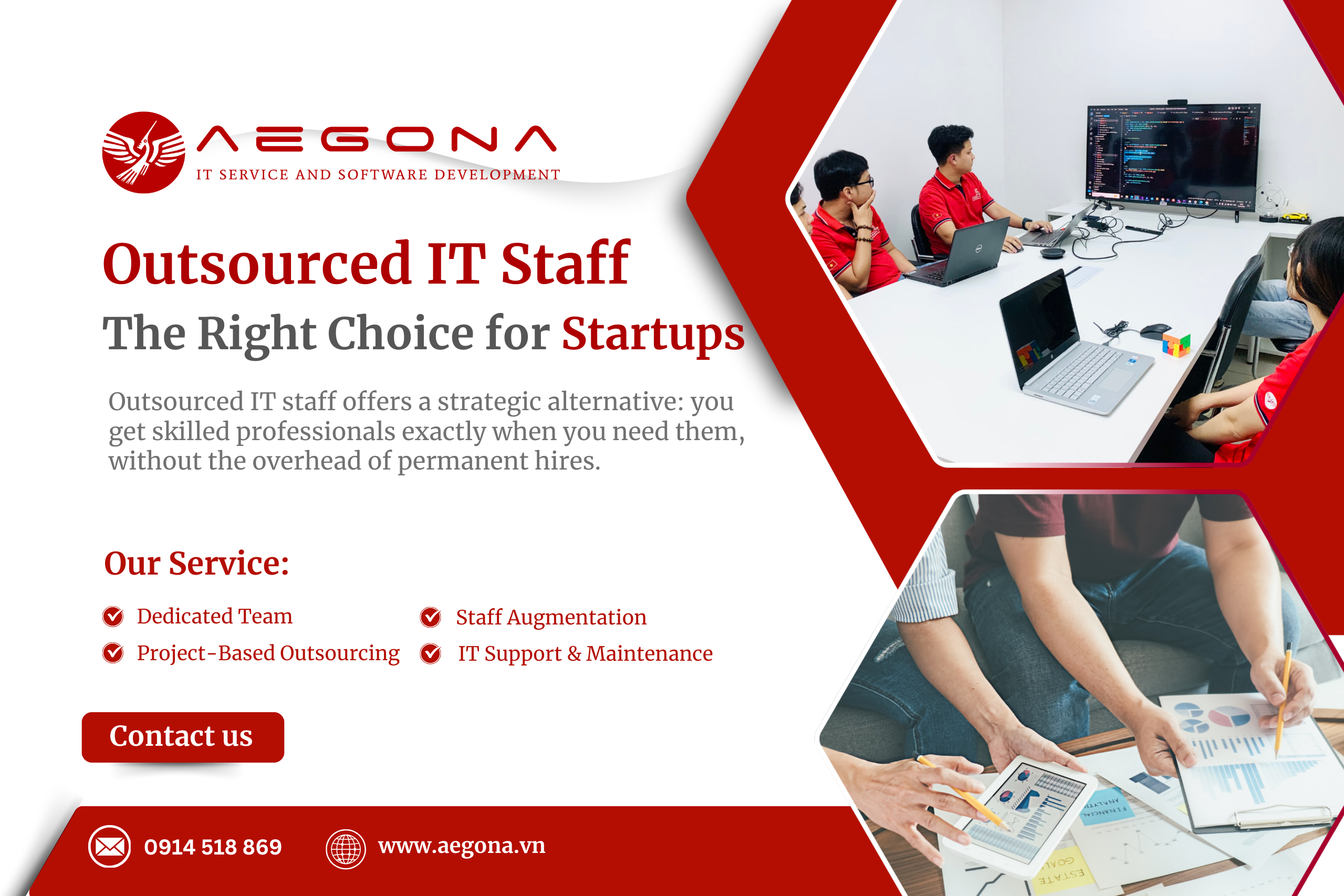
Outsourced IT staff offers a strategic alternative: you get skilled professionals exactly when you need them, without the overhead of permanent hires.
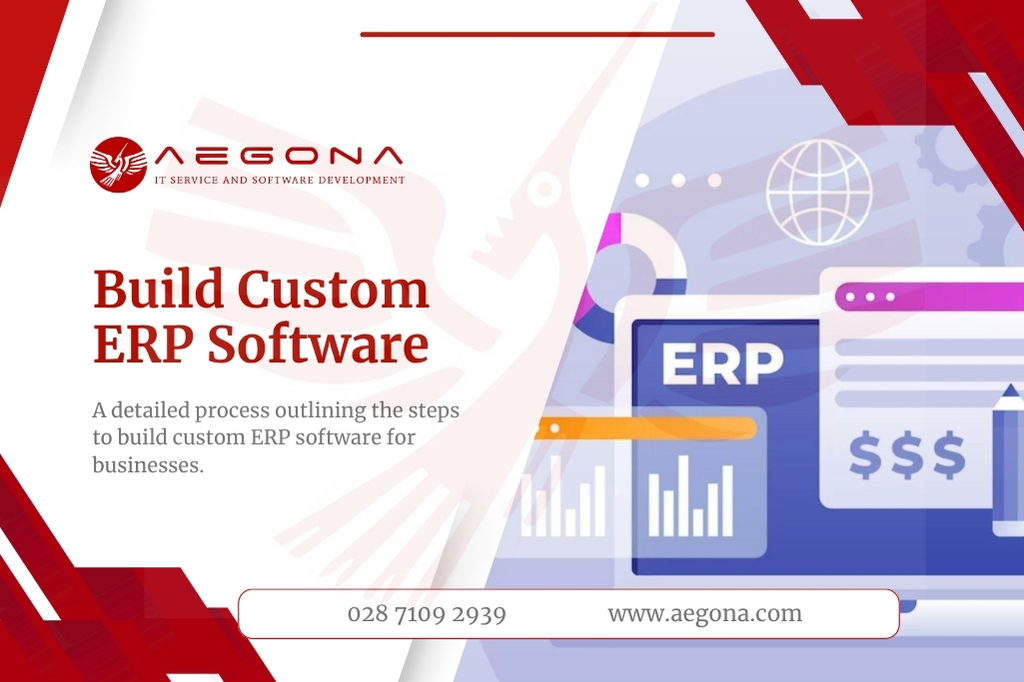
Build custom ERP software to streamline operations, boost efficiency, and fit your business needs. A complete step-by-step guide.
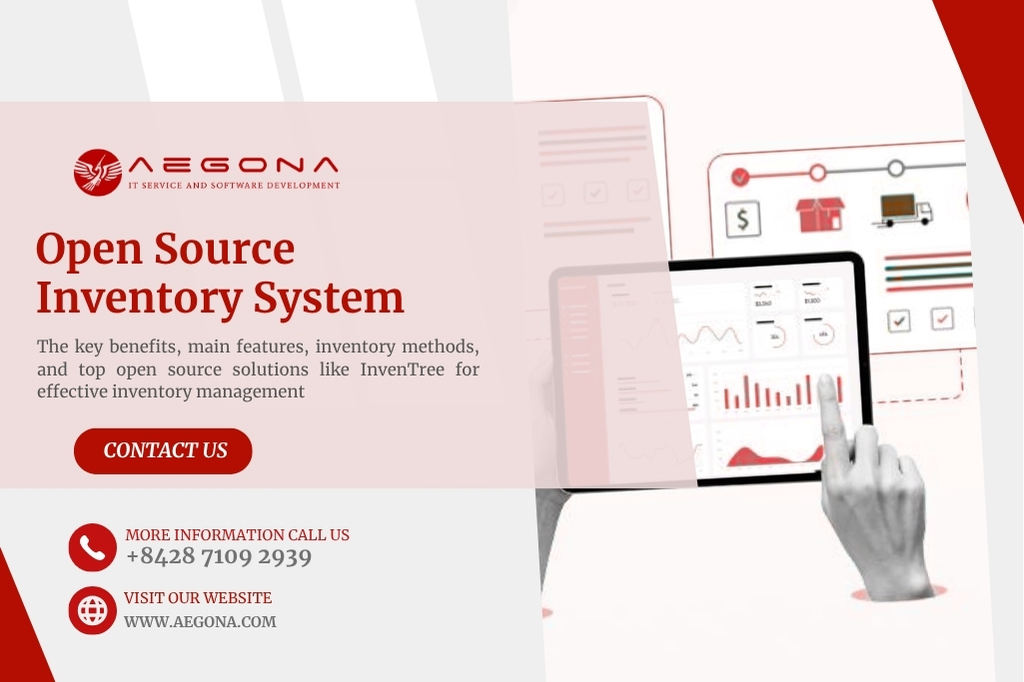
Discover the best open-source inventory systems like InvenTree. Learn key features, benefits, and tools to optimize warehouse and inventory operations.
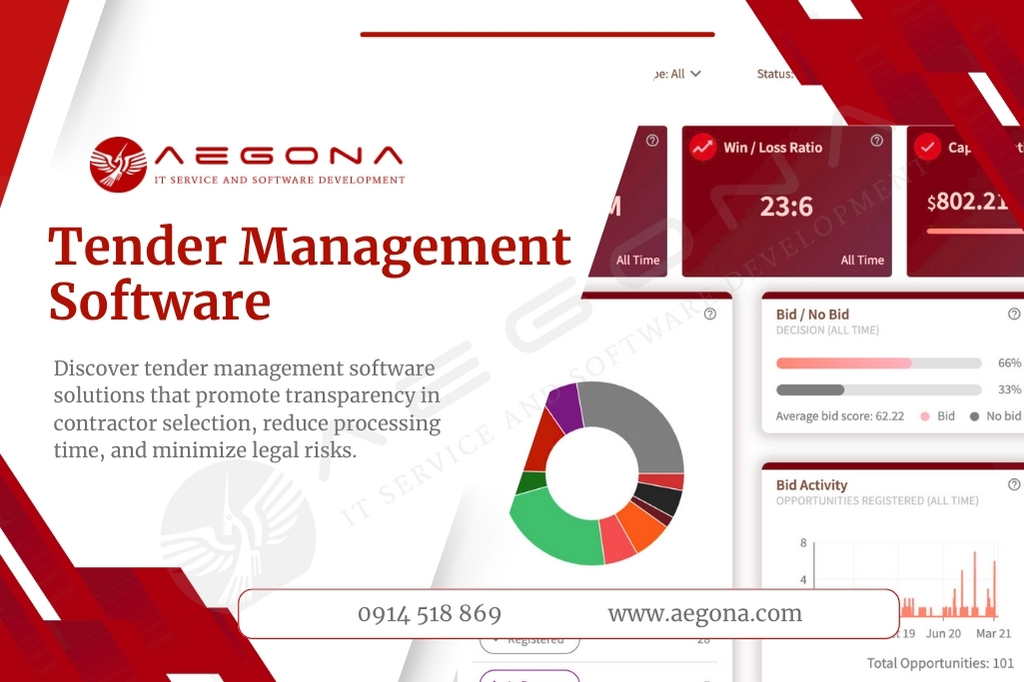
Discover how Tender Management software streamlines bidding, boosts efficiency, and when to choose a custom-built solution.
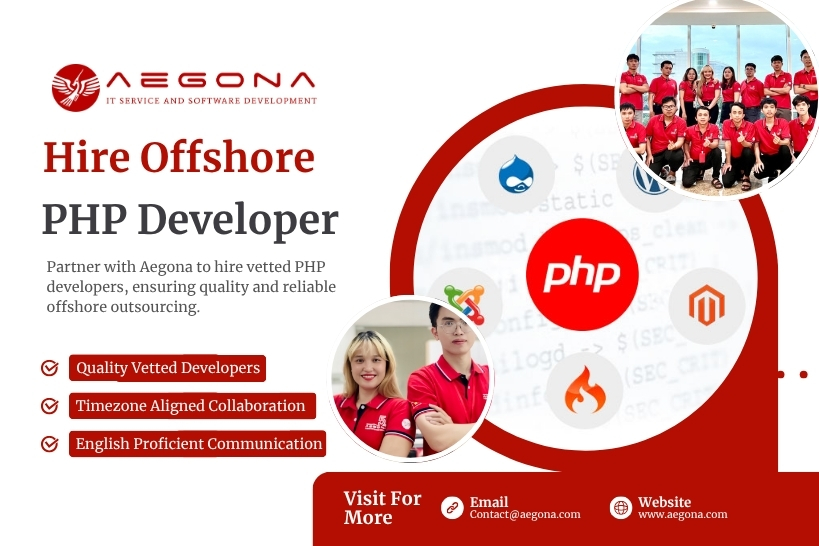
Discover the benefits of hiring offshore PHP developers in Vietnam and explore a step-by-step process to build a skilled, cost-effective development team.
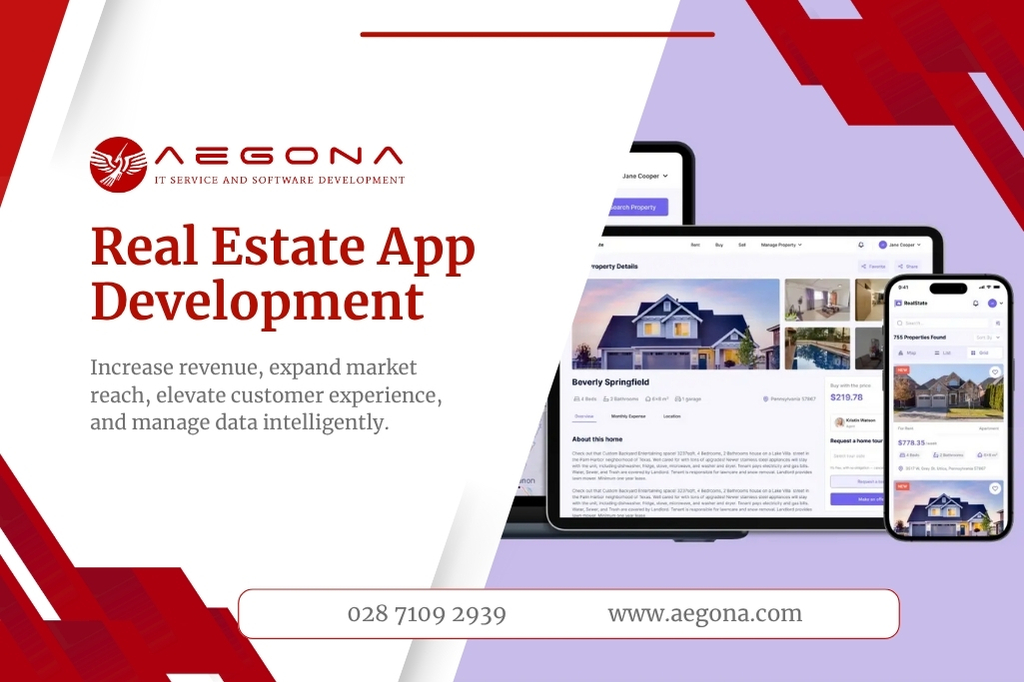
Discover the key benefits and features of real estate app development in Vietnam for businesses aiming to grow in the digital property market.
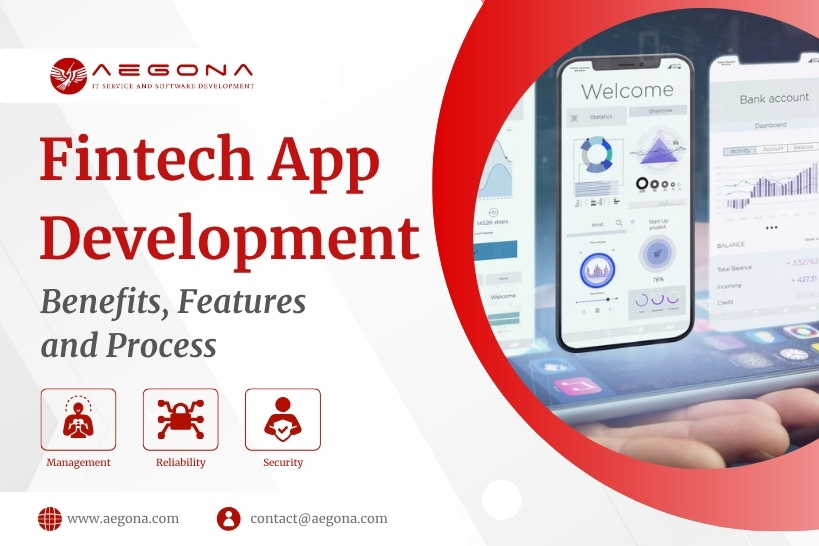
Custom FinTech app development for banking, insurance, payments & more. Secure, scalable, and tailored to your business.
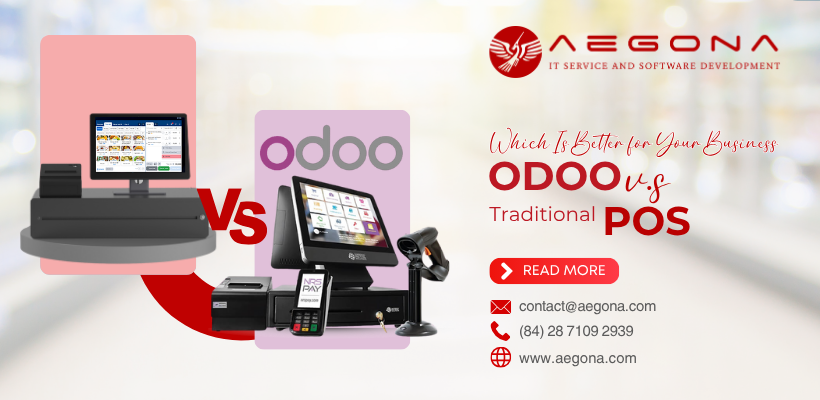
Odoo POS software is becoming an effective alternative to traditional POS systems thanks to its flexible integration capabilities and reasonable cost. Using sales management software plays an essential role in optimizing business operations. This article will help you compare Odoo software and traditional POS systems to find the most suitable option for your business.
